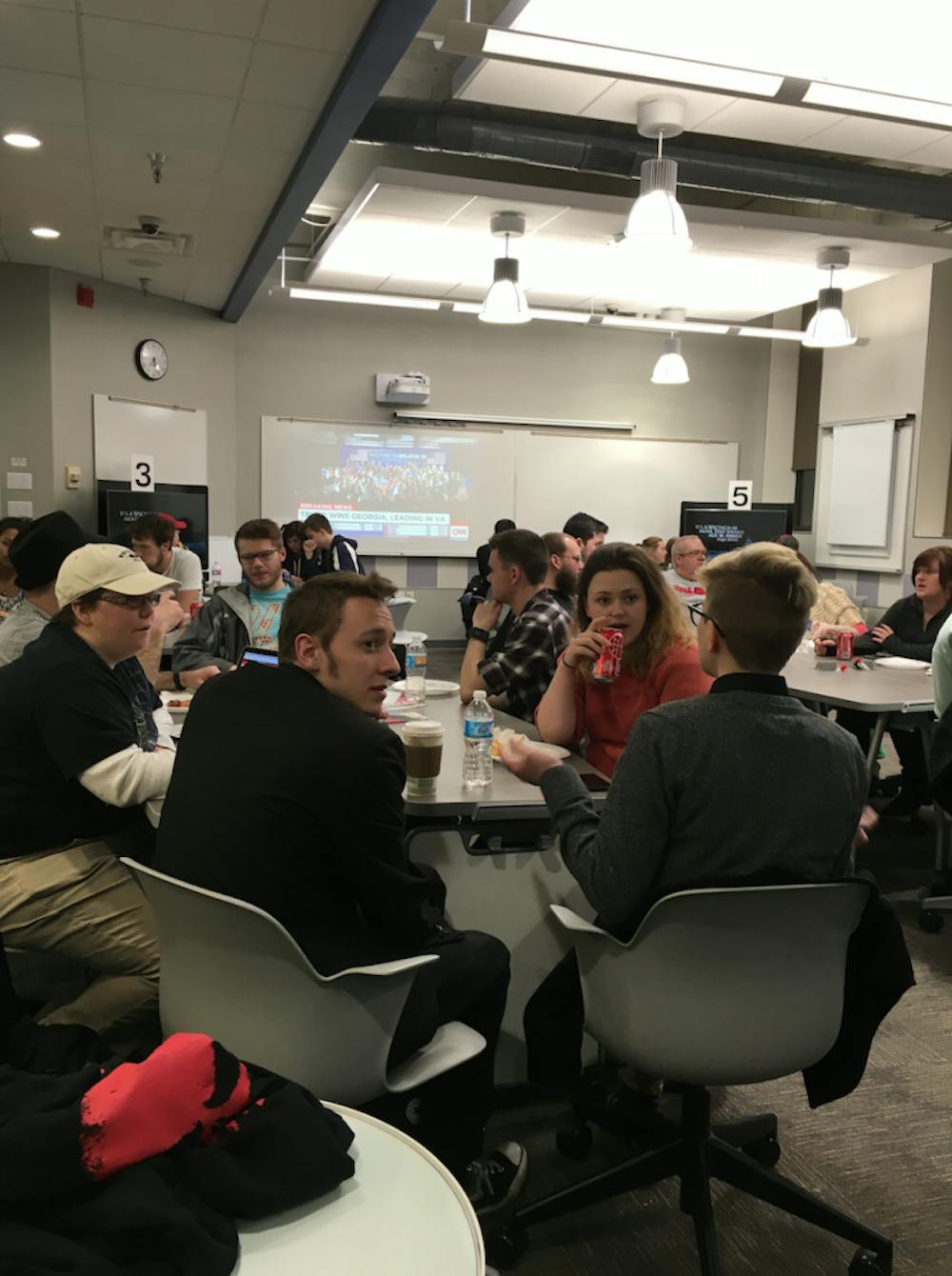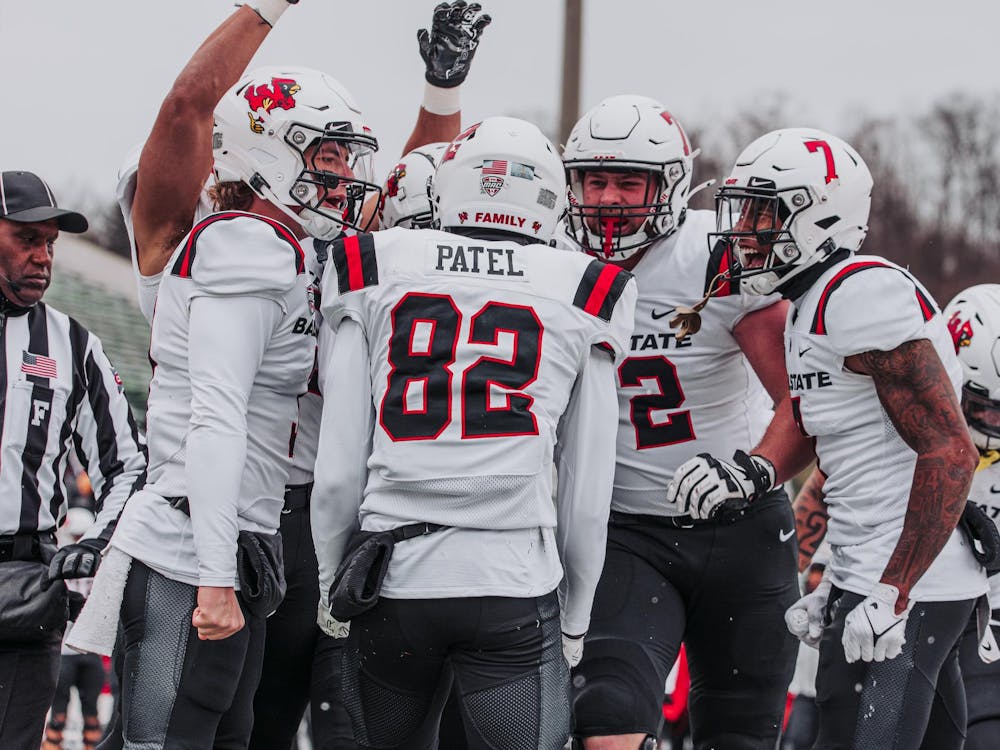Who won in each state?
Alabama: Hillary Clinton (D) and Donald Trump (R)
Alaska: Ted Cruz (R)
Arkansas: Clinton and Trump
Georgia: Clinton and Trump
Massachusetts: Clinton and Trump
Minnesota: Bernie Sanders (D) and Marco Rubio (R)
Colorado: Sanders
Oklahoma: Sanders and Cruz
Tennessee: Clinton and Trump
Texas: Clinton and Cruz
Vermont: Sanders and Trump
Virginia: Clinton and Trump
Source: The Associated Press
This was the first year the Political Science Department hosted a viewing party for the day — when there were 11 primaries for the presidential elections. Both Fox News and CNN were streamed on 10 monitors during the party.
Want more Super Tuesday? Check out a graphic of who won here, or read the news coverage.
Brandon Waite, an assistant political science professor, helped host the event to try to increase student excitement and interest for the election within the department.
“It’s important for people to start caring," Waite said. "Part of college is maturing into an adult, and part of maturing into an adult is to start taking a more active role and choosing who our leaders are. These are the people who will have direct impact on your life.”
Senior philosophy major Conor Ross said he has been interested in politics since middle school and started paying attention to elections in 2008.
“Back then, I went to a high school that was extremely conservative. …I was kind of the outsider with my 'Barack Obama for president' t-shirt. I learned how to talk to the people that have different opinions than I do, and maybe try to persuade them or get them on my side,” Ross said. “It’s exciting to think that we live in a time when there’s such a dramatic shift happening between the upcoming generation and what people think about politics and what their positions are on certain things. I wish more of us would vote.”
Sean Hildebrand, an assistant political science professor, is new to Ball State and has done an event like this at two other universities in 2008 and 2012.
He said the event is a way for faculty to reach out and have informal conversations with students and to show them “we’re human — we eat pizza and we can talk politics too.”
In his classes, Hildebrand makes time to talk about current politics and tries to relate it into his material. Even if people are on different sides, there is still a chance to talk about what is going on and what it means, he said, because politics are something that impacts everyone.
“[Politics are] something that you might as well get involved with to try to shape, even if it’s just a little piece," Hildebrand said. "Go out there, and — as much as you may hate the system — the only way the system is ever going to change is to get involved and to understand what’s going on."
Who won in each state? Alabama: Hillary Clinton (D) and Donald Trump (R) Alaska: Ted Cruz (R) Arkansas: Clinton and Trump Georgia: Clinton and Trump Massachusetts: Clinton and Trump Minnesota: Bernie Sanders (D) and Marco Rubio (R) Colorado: Sanders Oklahoma: Sanders and Cruz Tennessee: Clinton and Trump Texas: Clinton and Cruz Vermont: Sanders and Trump Virginia: Clinton and Trump Source: The Associated Press





